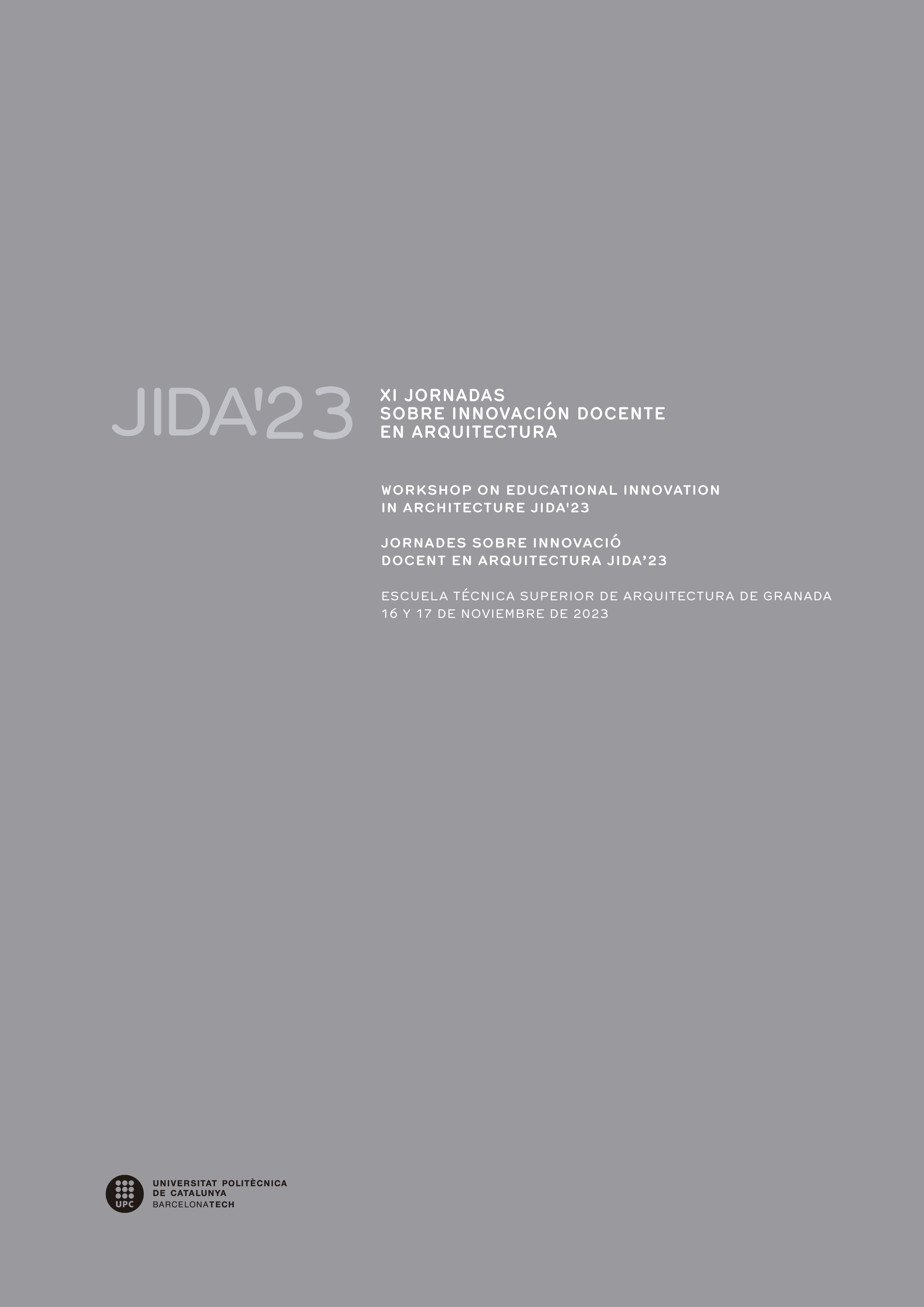Pedagogical model for the first year of undergraduate studies: development of open problem solving skills
DOI:
https://doi.org/10.5821/jida.2023.12291Keywords:
design studio, architectural design, first year, didactic techniques, critical disciplineAbstract
In this article, pedagogical model for the first year of the architectural design is presented, developed within the framework of an extensive group (1500 students and 17 professors over a five-year period), in the context of professional enablement education, with increasing educational demands in ever-shorter learning times. The theoretical knowledge, student training, and proposed exercises are aimed at the early acquisition of operational and disciplinary capabilities as a support for critical thinking strategies, suggesting a faster approach to the "real" world, opposed to more abstract, composition-centered learning methods. The proposed method focuses on core topics of the discipline and aims to equip students with the recognition and mastery of fundamental operational supports and work strategies for solving open project problems.
References
Campo Baeza, Alberto. 2009 Pensar con las manos. Buenos Aires: Nobuko.
Fuentealba Quilondrán, Jessica. 2021. El ciclo inicial en la formación del arquitecto - Tensiones y reacciones ante un escenario de cambios en España y Chile. Tesis Doctoral. Universidad de Alcalá.
Le Corbusier. 1960. L’atelier de la recherche patiente. Fage, ed. 2015.
Gaite, Arnoldo. 2011. El taller de arquitectura: ideas y escritos para la enseñanza, crónicas del taller, Buenos Aires: Nobuko.
PE - Parlamento Europeo. 2005. Directiva 2005/36/CE Del Parlamento Europeo y del Consejo de 7 de septiembre de 2005 relativa al reconocimiento de cualificaciones profesionales.
Rocha, Paulo Mendes da. 2007. Maquetes de papel. São Paulo: Cosac Naify.
Spencer, Jorge. 2001. Aspectos heurísticos de los dibujos de estudio en el proceso de concepción en arquitectura. Tesis Doctoral. Universidad Técnica de Lisboa.
Siza Vieira, Álvaro. 1982 Proceso de escrita “A Casa Interrompida”. Texto dactilografado, inacabado, rasurado e com as alterações propostas. Porto.



















